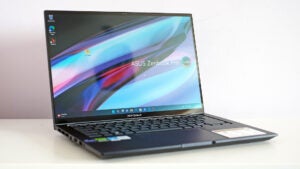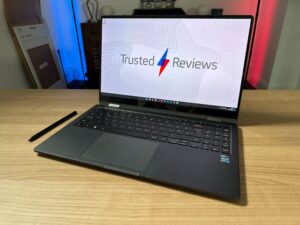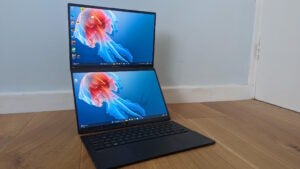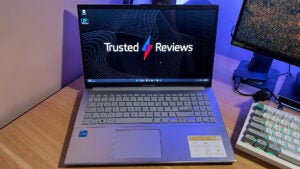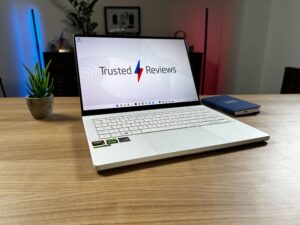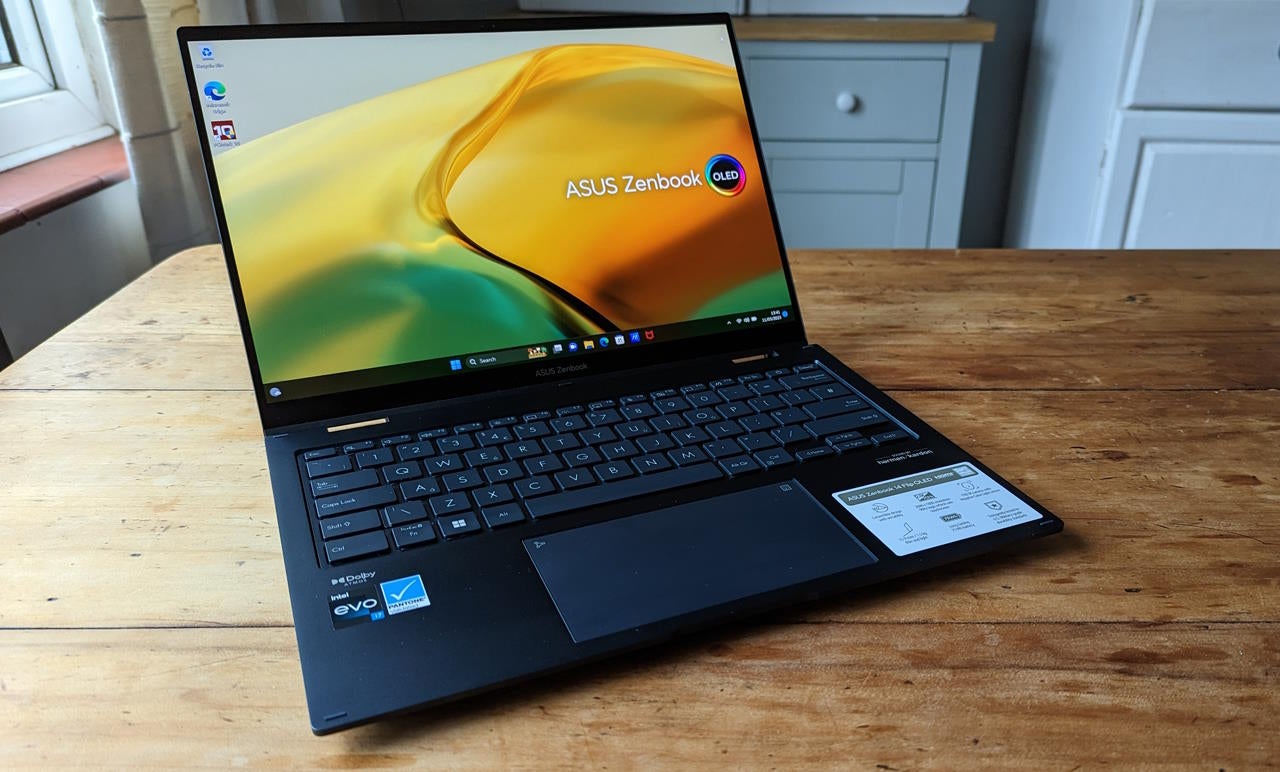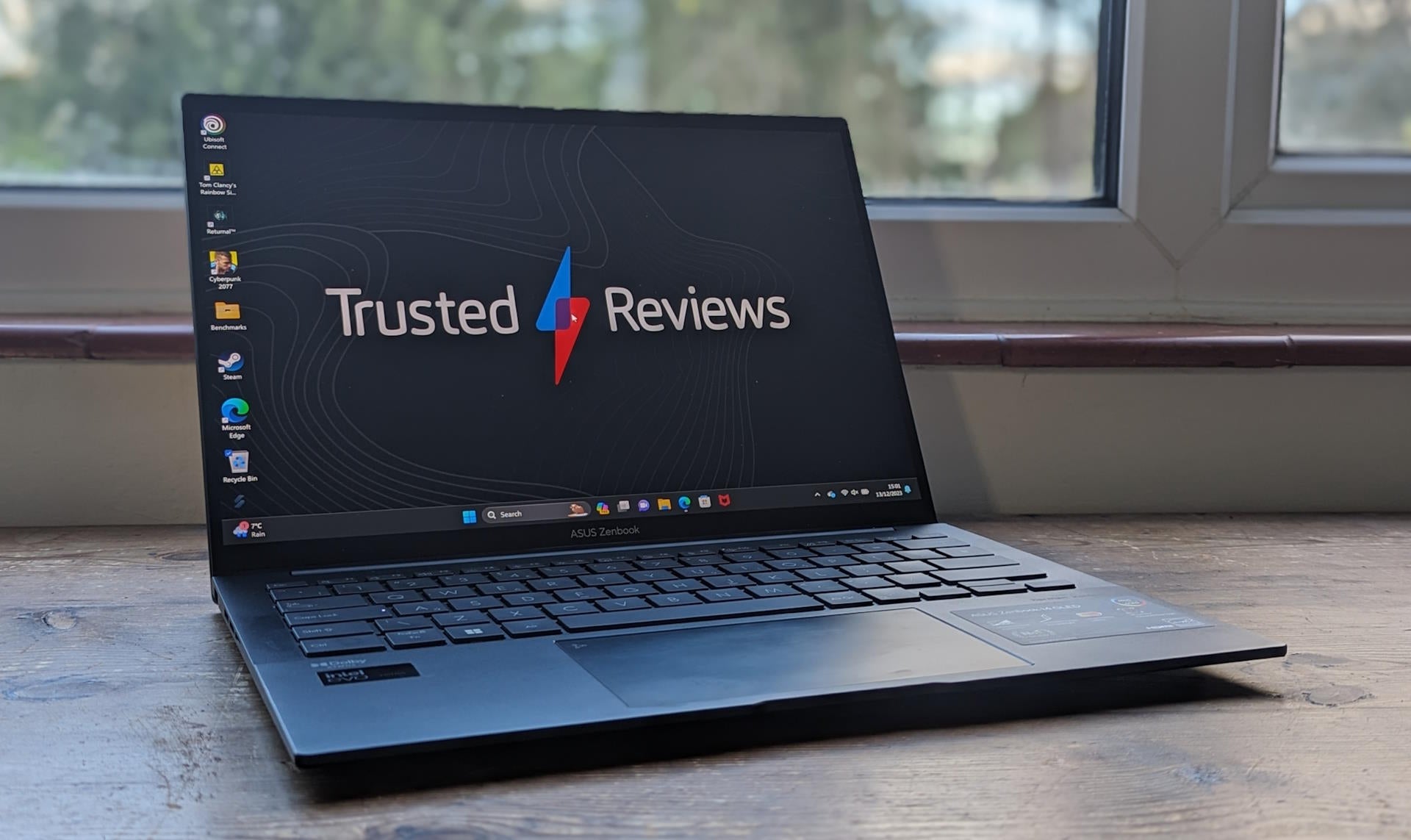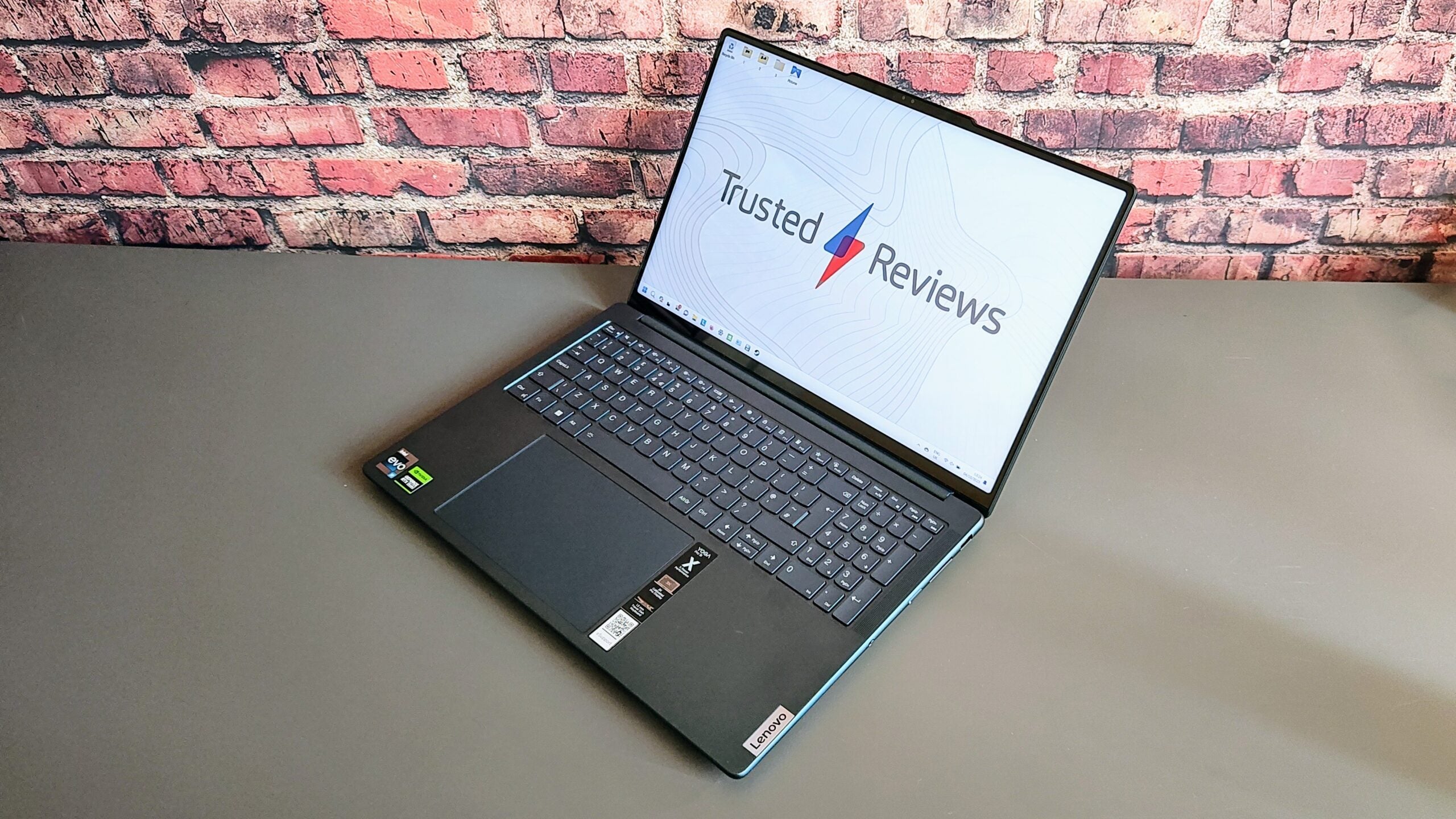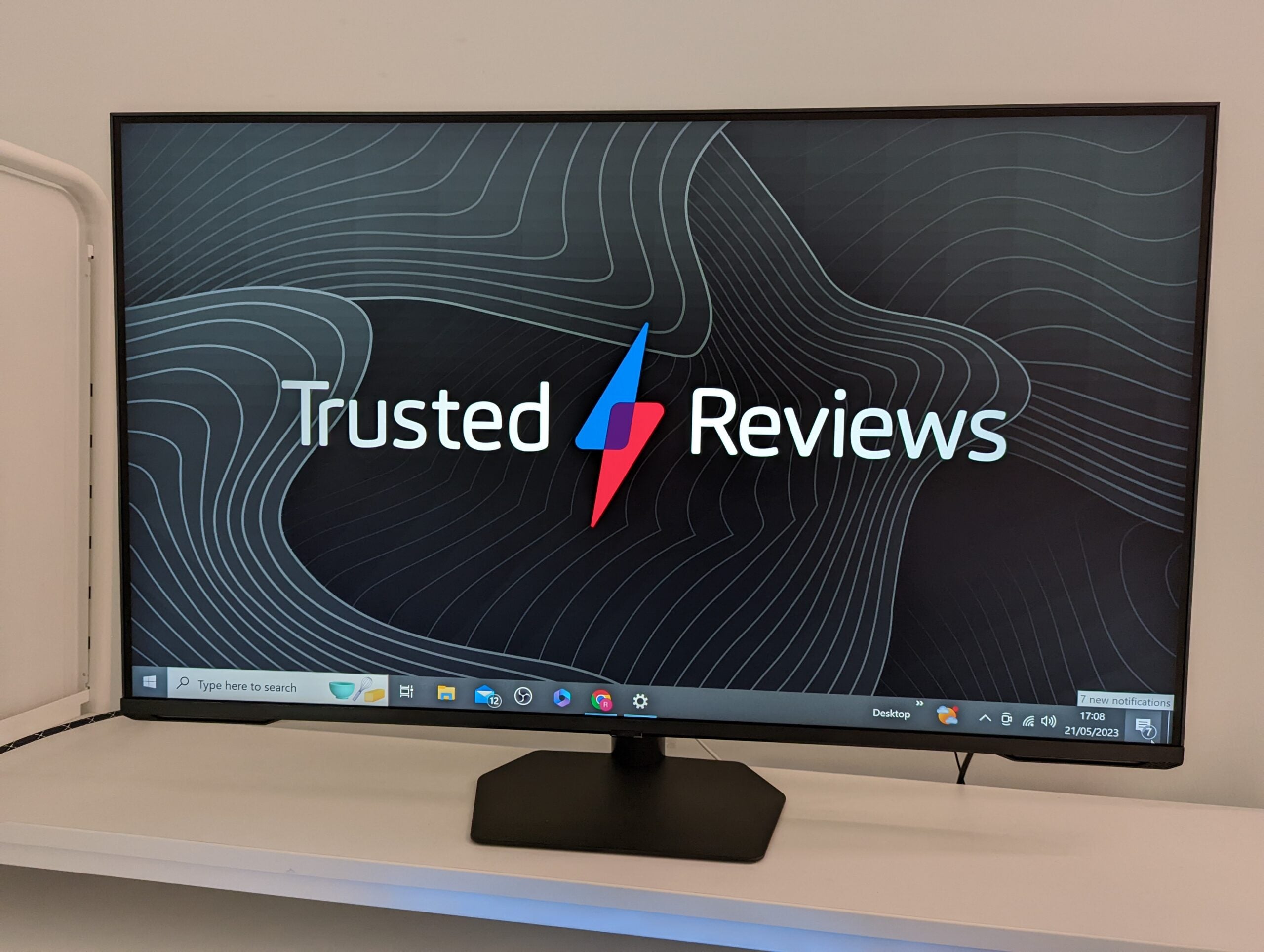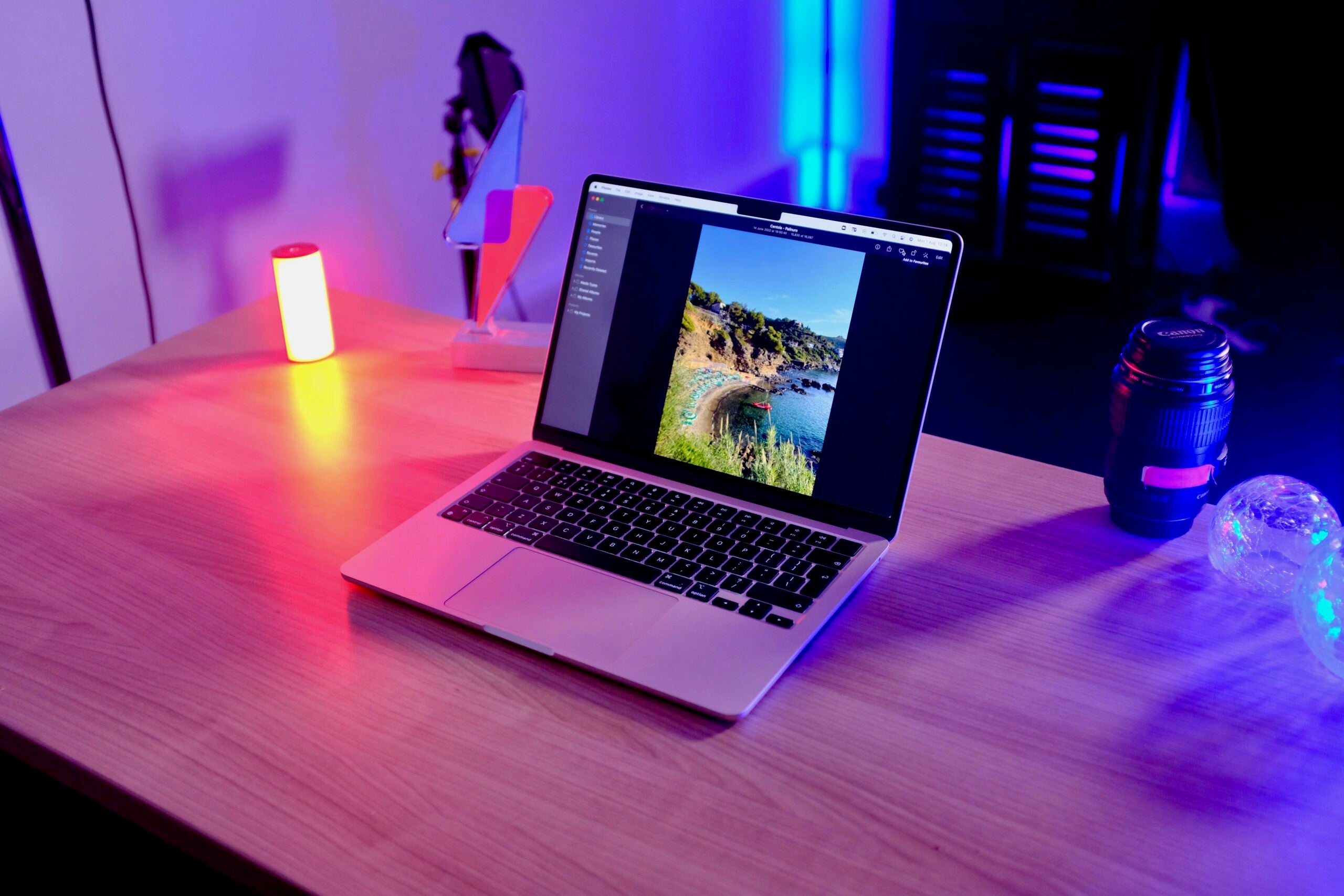Best OLED Laptops 2024: Top laptops with cutting-edge display tech
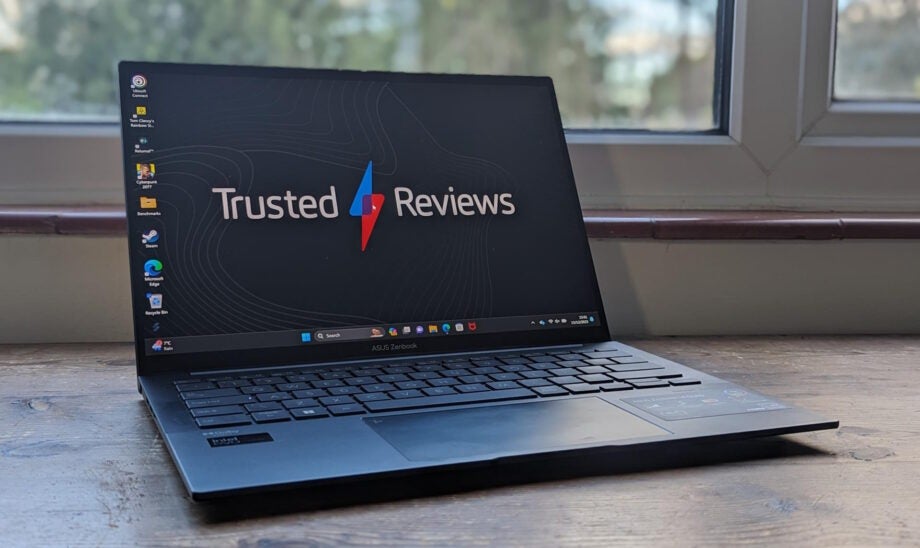
OLED laptops are becoming more popular by the year, and for good reason.
OLED technology gives a screen the capability to display true blacks, so night skies appear pitch rather than a murky grey. They also help to deliver higher contrast and more accurate colours, resulting in a punchier image that could rival anything that you see at the cinema.
Any laptop with an OLED display will be a great option for watching Netflix movies and YouTube videos on the go, as well all need some downtime from work. But what are the best OLED laptop options that you can buy?
Our team of experts test and review loads of laptops every year, so we’ve decided to create this guide to round-up the highest scoring laptops with an OLED screen. We’ve made sure to cater to as many budgets as possible, while picking a variety of form factors to classic clamshells to dual-screen beauties.
So if you’re on the hunt for a new OLED laptop, check out the best options below. And if you’d like to branch out beyond OLED displays, we’ve got more expert-chosen laptops in our best laptop, best gaming laptop, best student laptop and best budget laptop pages for a more general look.
Best OLED laptops at a glance
- Best overall OLED laptop: Asus Zenbook 14 OLED – check price
- Best content creation OLED laptop: Asus Zenbook Pro 14 OLED – check price
- Best 2-in-1 OLED laptop: Samsung Galaxy Book 3 360 – check price
- Best dual-screen OLED laptop: Asus Zenbook Duo (2024) – check price
- Best big-screen OLED laptop: Acer Swift Edge 16 – check price
- Best cheap OLED laptop: Asus Vivobook Go 15 – check price
How we test
Every laptop we review goes through a series of uniform checks designed to gauge key things including build quality, performance, screen quality and battery life.
These include formal synthetic benchmarks and scripted tests, plus a series of real world checks, such as how well it runs the most frequently used apps.
We also endeavour to use every laptop we review as our primary device for at least a week to ensure our review is as accurate as possible.
- Powerful, and ready to play games
- Pixel-rich OLED screen
- Quality keyboard and touchpad
- Unusual DialPad virtual rotary controller
- High-pitch fan noise
- Portable design does involve performance concessions
- Great performance in mainstream apps
- Good gaming performance by iGPU standards
- Fantastic OLED screen
- No compromises on the connectivity or ergonomics
- GPU speeds constrained by slimline form factor
- Strong productivity performance
- Best-in-class Full HD AMOLED display
- High-quality design
- Great typing experience
- Awkward keyboard and trackpad placement
- Basic speakers
- Fantastic, flexible dual-screen design
- Impressive clarity, contrast and colour on both OLED screens
- Excellent clip-in, clip-out keyboard
- Decent all-round performance from Core Ultra 9 CPU
- GPU performance seems constrained
- Mediocre battery life
- Audio grows harsh at higher volumes
- Impressively well-rounded performance
- Bright and rich 3.2K OLED display
- Impressively lightweight
- Top-tier port selection
- Odd trackpad click
- Poor speakers
- Eager fans
- Good price for OLED
- Strong battery life
- Respectable entry-level performance
- Basic typing experience with no backlight
- Memory and storage can’t be upgraded
- Luxury portable redesign
- Excellent keyboard
- Luscious OLED display
- Impressive graphical performance
- Expensive
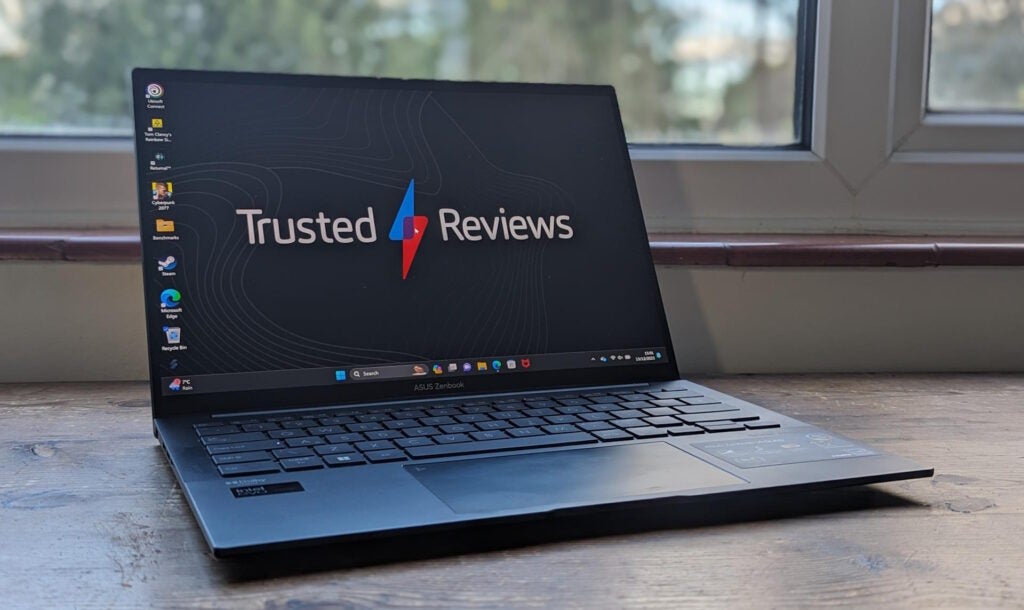
Asus Zenbook 14 OLED
Best overall OLED laptop
Pros
- Great performance in mainstream apps
- Good gaming performance by iGPU standards
- Fantastic OLED screen
- No compromises on the connectivity or ergonomics
Cons
- GPU speeds constrained by slimline form factor
Asus has fully embraced the OLED screen technology, making sure it’s available on all of its laptops in the latest range. We think the Asus Zenbook 14 OLED is the best of the bunch, at least for the average laptop user.
It’s incredibly powerful for a productivity laptop, leapfrogging most of the competition (including the MacBook Air M2) thanks to the cutting-edge Intel Core Ultra processor. It’s also extremely light at just 1.29 kg, making it a great option for those who work on the go, or commute to the office on a daily basis.
We were impressed with the battery life while testing this laptop too, achieving close to 13 hours, and so surpassing most of its Windows competitors. And of course, it has a 14-inch OLED screen that looks fantastic whether gaming or streaming video.
It’s genuinely difficult to find a weakness with the Asus Zenbook 14 OLED, making it the best all-round laptop with an OLED display. The only real reason you should consider another OLED laptop is if this is too expensive for your budget, or you’re craving more graphics power to maximise your creative skills.
Reviewer: Stuart Andrews
Full Review: Asus Zenbook 14 OLED review
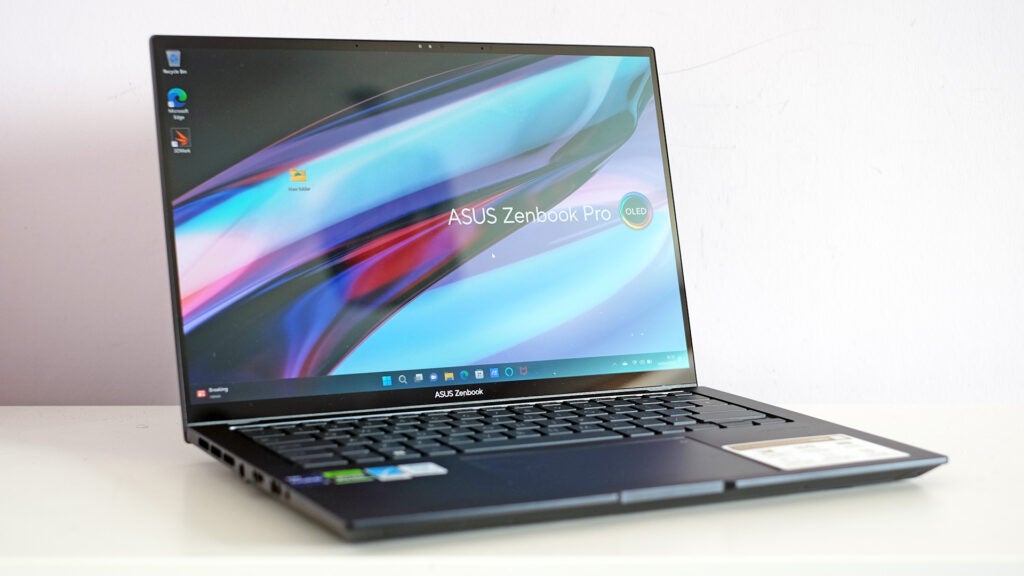
Asus Zenbook Pro 14 OLED (2023)
Best content creation OLED laptop
Pros
- Powerful, and ready to play games
- Pixel-rich OLED screen
- Quality keyboard and touchpad
- Unusual DialPad virtual rotary controller
Cons
- High-pitch fan noise
- Portable design does involve performance concessions
The Asus Zenbook Pro 14 OLED (2023) is another OLED laptop that stands out in a year when impressive Apple MacBook devices have taken centre stage – providing a strong rival to the 14-inch model.
Asus has truly thrown everything at this OLED panel, with a 2.8K resolution, 120Hz refresh rate and a peak brightness of close to 600 nits. Stunning stuff. This results in bright colours that pop off the screen while also offering great accuracy for those who need it. That high refresh rate adds to the all-round power-filled appeal of this machine too, making it a solid option for gamers. This display is something special.
The impressive display is backed up by a dedicated Nvidia graphics chip, giving it the grunt to be able to handle triple-A gaming and high-end editing work. The Zenbook Pro 14 OLED is a laptop for those who require a lot of power on the go. This doesn’t look like a gaming laptop but it dons an excellent keyboard for those who desire it, with deep travel and substantial feedback. Asus also includes its unique DialPad for assisting with navigating creative applications.
Battery life is solid for an OLED laptop too, offering more than 8-hours which is surprising given the graphical performance embedded in this machine.
Reviewer: Andrew Williams
Full Review: Asus Zenbook Pro 14 OLED (2023) review

Asus ROG Zephyrus G14 (2024)
Best gaming OLED laptop
Pros
- Luxury portable redesign
- Excellent keyboard
- Luscious OLED display
- Impressive graphical performance
Cons
- Expensive
Asus really has gone all out on OLED laptops in recent years, making the high-end screen technology the norm across all of its productivity portables. And for 2024, it’s now expanding the technology into its gaming portfolio, with the Asus ROG Zephyrus G14 (2024) being our favourite of the bunch.
The Zephyrus G14 strikes an astonishing balance between power and portability, weighing just 1.5kg despite packing an Nvidia RTX 4070 GPU. This makes the laptop capable of playing modern AAA games at a Quad HD resolution, with our tests showing Cyberpunk 2077 to be playable, even with ray tracing activated.
The OLED panel really helps to make games look more vibrant too, while the 3K resolution ensures sharp imagery and the 120Hz sees buttery smooth on-screen motion. With such fancy specs, it’s no surprise to see battery life limited to 6 hours in our tests, so make sure you’ll be using this laptop within reach of a plug socket.
If you’re looking for an OLED laptop that excels at both gaming and productivity workloads, with a portable design to boot, then there really is no better option than the Asus ROG Zephyrus G14 (2024).
Reviewer: Adam Speight
Full Review: Asus ROG Zephyrus G14 (2024) review
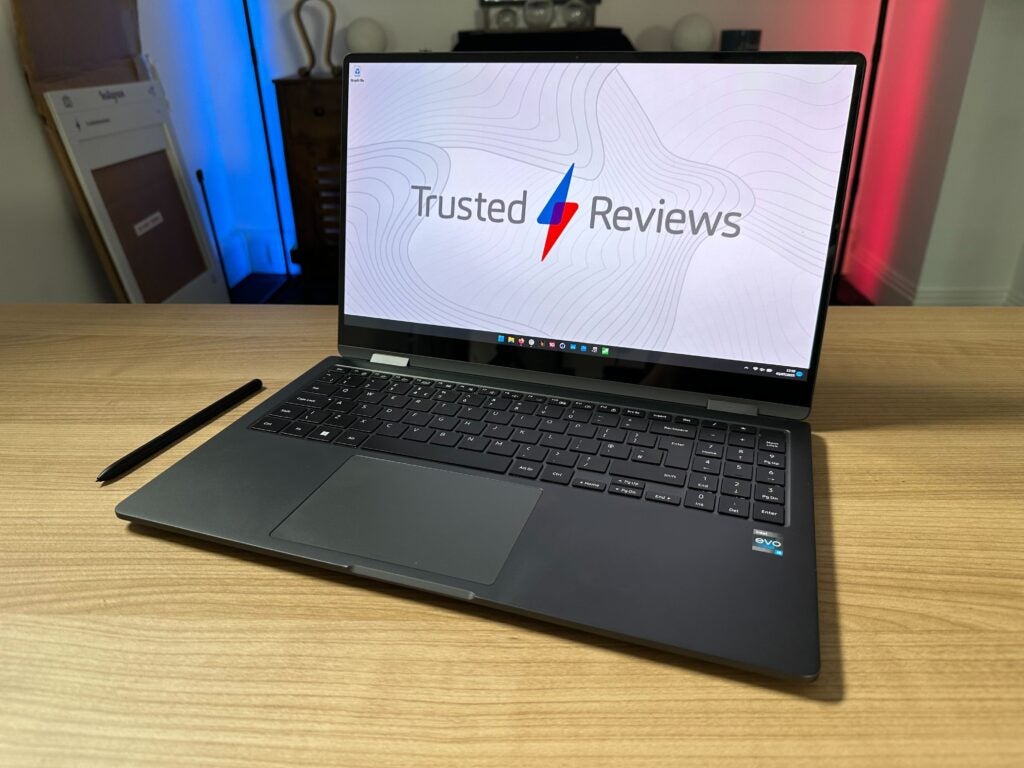
Samsung Galaxy Book 3 360
Best 2-in-1 OLED laptop
Pros
- Strong productivity performance
- Best-in-class Full HD AMOLED display
- High-quality design
- Great typing experience
Cons
- Awkward keyboard and trackpad placement
- Basic speakers
We’re cheating a little with the Samsung Galaxy Book 3 360, as it’s actually flaunting an AMOLED screen rather than an OLED one. However, there really isn’t much difference between the two, as both offer the superb contrast and accurate colours that fans adore.
The Samsung Galaxy Book 3 360 is our top OLED laptop recommendation for those who want a 360-degree hinge, allowing you to flip the laptop’s screen around to form a tablet. Samsung’s S Pen is bundled in too, allowing you to doodle and sketch directly onto the device.
We really loved the quality of the keyboard here too, making it a joy to type on and ideal for those who find themselves writing out longform essays. Productivity performance is strong too, even if the processor is starting to feel slightly dated compared to newer laptops. On that note, we’re planning to review the Samsung Galaxy Book 4 360 shortly, which offers more up to date specs.
So if you want to buy both a laptop and tablet, the Samsung Galaxy Book 3 360 is an excellent option that covers both bases, all while featuring a lovely OLED screen.
Reviewer: Adam Speight
Full Review: Samsung Galaxy Book 3 360 review
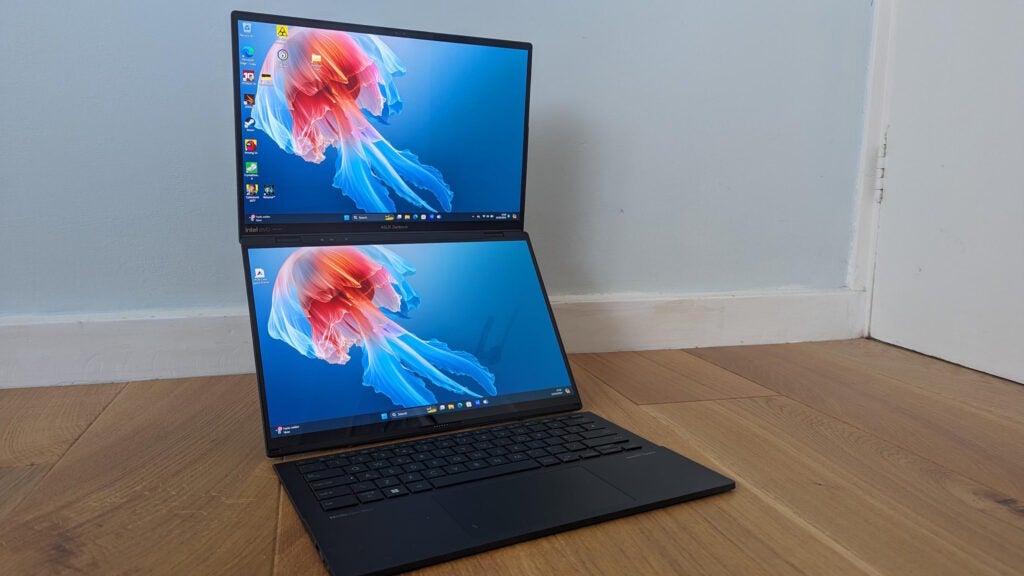
Asus Zenbook Duo (2024)
Best dual-screen OLED laptop
Pros
- Fantastic, flexible dual-screen design
- Impressive clarity, contrast and colour on both OLED screens
- Excellent clip-in, clip-out keyboard
- Decent all-round performance from Core Ultra 9 CPU
Cons
- GPU performance seems constrained
- Mediocre battery life
- Audio grows harsh at higher volumes
Why settle for one OLED screen when you can have two? That was clearly Asus’ motto when designing the dual-screen Zenbook Duo. By fusing two screens together via a hinge, and then bundling in a Bluetooth keyboard, this left-field laptop is a great option for those who love a multi-monitor setup for multitasking.
We were impressed with how versatile the Duo proved to be during testing, allowing you to prop it up in either a vertically or horizontally stacked arrangement, with the keyboard planted on the desk in front. Or alternatively, you can place the bundled keyboard on top of the bottom screen to use it like a classic clamshell laptop.
The design will steal most people’s attention, but the Zenbook Duo excels elsewhere too. It brags a powerful productivity performance courtesy of the Intel Core Ultra chip, while the OLED screen is packed with details and is impressively vibrant.
Despite the impressive dual-screen design and specs, the Zenbook Duo is surprisingly affordable, especially when compared to the Asus Zenbook 17 Fold OLED. So if you think you’ll benefit from the dual-screen form factor, but still want to benefit from an OLED screen, then the Asus Zenbook Duo (2024) is the best you’re going to find.
Reviewer: Stuart Andrews
Full Review: Asus Zenbook Duo (2024) review

Acer Swift Edge 16
Best big-screen OLED laptop
Pros
- Impressively well-rounded performance
- Bright and rich 3.2K OLED display
- Impressively lightweight
- Top-tier port selection
Cons
- Odd trackpad click
- Poor speakers
- Eager fans
The bigger the OLED screen, the bigger the price, or at least that’s the rule for the majority of laptops. The Acer Swift Edge 16 bucks that trend though, providing a 16-inch OLED at an attainable price.
You may also fear that a 16-inch laptop is too cumbersome to port around, but the Swift Edge 16 is remarkably slender, and weighs just 1.23kg – that’s even lighter than a lot of 13-inch laptops.
During testing, we loved having such a big screen, which not only helped for fitting multiple web browsers on the screen simultaneously, but also for a more cinematic experience when watching movies and TV shows. The processing speeds are excellent too, offering snappier speeds than the vast majority of lightweight laptops in the last 12 months.
If you want your OLED screen to be as big as possible, within reason for a portable PC, then the Acer Swift Edge 16 is the best laptop for the job.
Reviewer: Adam Speight
Full Review: Acer Swift Edge 16 review
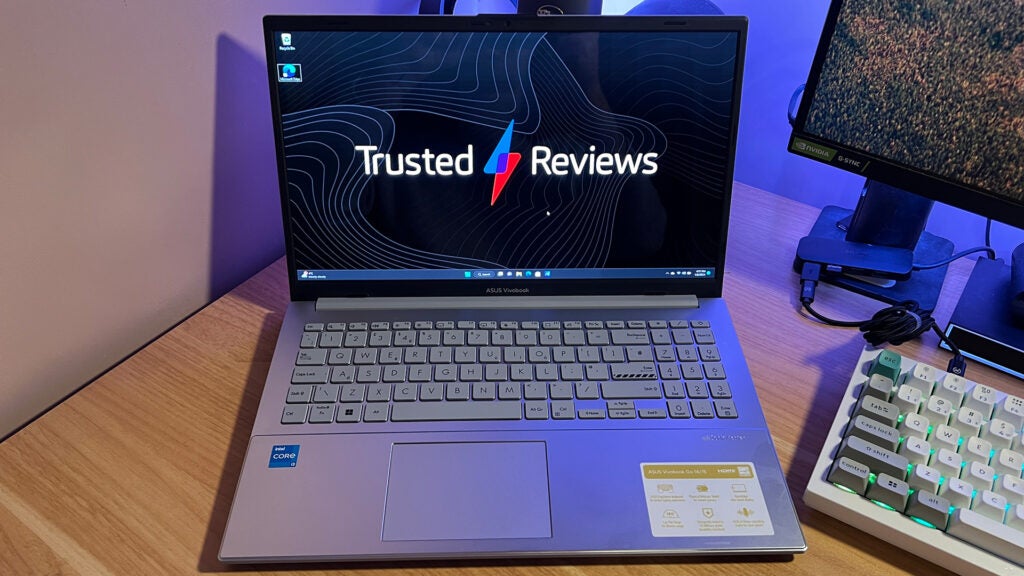
Asus Vivobook Go 15 OLED
Best cheap OLED laptops
Pros
- Good price for OLED
- Strong battery life
- Respectable entry-level performance
Cons
- Basic typing experience with no backlight
- Memory and storage can’t be upgraded
OLED laptops have become far more affordable in recent years, but it’s still rare to find one below the £1000/$1000 mark. That makes the Asus Vivobook Go 15 particularly noteworthy, as it’s available for as little as £500/$500, yet still features a 15.6-inch OLED display.
This laptop ships with Windows 11 S, but you can upgrade to the fully featured Windows 11 if you wish. This will likely impact performance, especially since it’s running on a low-powered chip. The Vivobook Go 15 is only really equipped for basic tasks such as web browsing, but if you know its limits, it can still be a dependable productivity machine.
Battery life is respectable at 8 hours in our testing, and it’s reasonably portable at 1.6kg. There are a few drawbacks such as the plastic design and lack of a keyboard backlight, but you have to accept such compromises when choosing a laptop with such an affordable price.
If you’re keen to get an OLED laptop, but are finding it difficult to justify spending so much money on some of the laptops on this list, then the Asus Vivobook Go 15 is a superb choice.
Reviewer: Josh Brown
Full Review: Asus Vivobook Go 15 OLED review
We also considered…
We’ve reviewed
See all reviewsFAQs
OLED screens offer excellent colour, being both accurate and aesthetically-pleasing, but it does come at a cost in terms of price and battery life. It’s ultimately down to user preference.
OLED will typically have the edge in colour accuracy and contrast but you can also get excellent IPS LCD panels too, that can also offer higher brightness, refresh rates and less cost to battery life.


